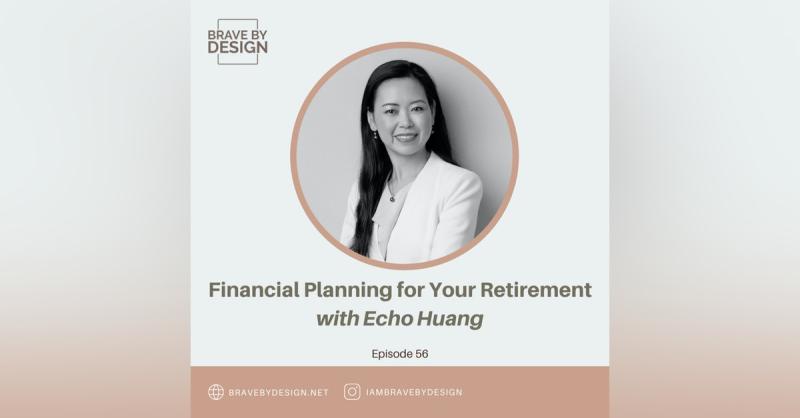A Man Is Not a Plan
Recently I heard a story from a 67-year old woman who had gotten divorced after twenty years of marriage. She had raised her daughter at home while she was younger, and she didn't get much from the divorce. She is now collecting about $900 per month from Social Security income and working part-time to get by while sharing an apartment with others. She is fearful about her financial future because she has never managed money before, and it's hard for her to find a job at her age.
I also heard another story about a woman who confided to her college-aged granddaughter that she had stayed in an abusive marriage for many years because she didn't have any control of money. Later, this woman's death resulted from falling down the stairs, which was confirmed not to be an accident. (Her abusive husband pushed her.) Staying because of money literally cost her her life.
Stories like these deeply sadden me, but they have also made me more certain that a man is not a plan. Gentlemen, this is not a slam against you; but ladies, you do face some unique challenges.
Challenges Faced by Women
Women face unique challenges in planning for a financially secure future. Here are a few of those challenges.
Women earn less than men, even though more women have a college degree. More women in the US have a college degree than men, but the average woman's unadjusted annual salary has been cited as 78% to 82% of that of the average man's as of 2015 (and hasn't changed that much today).
Women tend to choose occupations that are not highly paid. Much of that gap is due to occupational segregation —women clustering in low-paying careers, including cosmetology and childcare and men in more lucrative professions such as welding and automotive repair. In addition, more men choose highly paid careers that require a four-year college degree, such as science, technology, engineering, and finance. Women tend to choose nursing and education.
More women are single because American adults are far less likely to be married than they were two generations ago. Many women with successful careers still seem to think they can put off financial planning—everything from contributing to a 401(k) plan to buying a house—thinking, "This will all be taken care of when I get married.” Do not wait to make major decisions until you get married because the reality is, Prince Charming may never come.
The divorce rate is high in the United States.
Overall, retirement savings for most Americans are insufficient, and divorced women have even lower retirement asset balances and income to plan for their financial future.
Women spend an average of eleven years out of the workforce, caring for a relative or children. That time is usually spent not saving for retirement. Women have lower Social Security benefits as a result, as those benefits are tied to earned income history.
Women live longer than men by about seven years. In the United States, the average life expectancy for men is 73.4 years, whereas the average life expectancy for women is 80.1 years. This means women need more income in retirement.
The fact is, an increasing number of women will end up managing money on their own because they've been divorced, widowed, or have never married. All these unique challenges for women make planning for a financial future even more important.
Actions Women Should Take Now
So what can women do now to own their financial future?
Ladies (and gentlemen who have female friends and relatives), I believe that meticulous planning now can prepare you for uncertainties in the future. You can start planning now, even with limited money.
Here are a few tips for women to take action now.
- Educate yourself about the basic functions of personal financial planning, such as goal setting and budgeting. You can visit the Foundation for Financial Planning for available resources. In addition, you can sign up for my monthly newsletter on my company’s website to learn more going forward.
- Set short-term and long-term goals, make them specific, and set deadlines. For example:
o Pay off the credit card balance in 12 months.
o Save $500 per month to put six months of living expenses in your savings account as an emergency fund by December 31, 2021.
o Contribute 6% of your earned income to your 401(k) plan to get the maximum employer's matching contribution.
- Spend less than you make. Start creating a monthly budget and stick to it by using free online tools to see exactly how you spend your money. Remind yourself often your needs are different from your wants. If you haven't saved enough, review your discretionary expenses carefully and start trimming them now to direct the savings to your top priorities, such as paying off high-interest rate credit cards and saving for an emergency fund.
- Create a financial plan before you invest. This plan can be a simple cash flow plan that shows your projected income and expenses over multiple years. Being able to see a detailed cash flow report helps you understand your time horizon and how much risk you can afford to take.
- Maximize your contributions to your 401(k) to get 100% of employer's matching. Don't leave free money on the table because you might stay at the same job long enough to receive the vested matching contributions.
- Diversify to invest successfully. Picking a few stocks does not provide enough diversification to reduce risks. Asset allocation is an investment strategy that aims to balance risk and reward by apportioning a portfolio's assets according to an individual's goals, risk tolerance, and investment horizon. The three main asset classes - equities, fixed-income, and cash and equivalents - have different levels of risk and return, so each will behave differently over time.
- Compound your return. The magic of compounding is more magical if you have the time and the investments are in tax-free accounts, such as a Roth IRA, Roth 401(k), and a Health Savings Account.
- Assess your skills, strengths, and experiences in order to get a better- and higher-paying job. In order to increase your income and happiness, consider using these two tools: The Kolbe A Index and the DiSC Profile. Knowing yourself better can help you nail down the job that can use most of your strengths.
- Network continuously to learn from others and to help others. Without networking, I would not have found my dream career in personal wealth management in 2000 while I was working as a tax CPA with KPMG. Without networking, I would not have had the courage and wisdom to start my own business in 2003 with LPL Financial.
- If you are married but don't know how your husband manages your investments, it's time to be engaged in the discussions of what money can do for you and how you should create a plan to manage money better. You can work with an advisor to facilitate the discussions and create your financial plan based on your priorities and goals.
Empowering women can change the world for the better. I hope to empower more women to earn more, save more, and invest wisely in order to have a secure financial future.
Remember, your future is yours, so believe in yourself, and believe that success is achievable as long as you are willing to dream, learn from failures, plan meticulously and deliberately, and then take small actions to get you to the next goal. Monitor your plan over time, and position yourself to seize opportunities as they arise. This doesn't mean living with only the end in mind. Your dreams may change, so be flexible and adaptable.
And if you need help from a financial advisor along the way, I invite you to consider my firm,
Echo Wealth Management. Schedule a
complimentary 30-minute Discovery Call to learn more about you can plan for your financially-secure future. Wealth management can be complicated, but it doesn’t have to be. Get the right help, and make sure you enjoy the journey.













